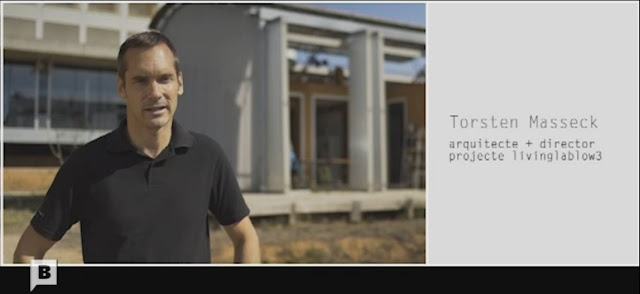
Un cop enllestida la presentación inicial, els estudiants es
van dividir en quatre grups: la gestió de l’energia amb el sistema domòtic, el
funcionament bioclimàtic i els sistemes solars fotovoltaic i tèrmic van ser el
centre de l’ exploració i els mesuraments que van dur a terme.
Després d’una aturada per esmorzar, en la que vam aprofitar per a fer crispetes amb la cuina solar parabólica (14 minuts), experimentant la capacitat energètica de la concentració de la radiació solar, els diferents grups es van explicar allò que havien descobert i experimentat els uns als altres, debatent els conceptes tractats i els resultats obtinguts.









